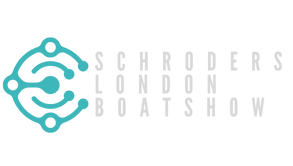In the ever-evolving world of tech, finding the right school can feel like searching for a needle in a haystack—blindfolded. Enter Turing School of Software and Design, where coding dreams come true faster than you can say “JavaScript.” This isn’t just another place to learn; it’s a vibrant community buzzing with innovation, creativity, and a sprinkle of nerdy humor.
At Turing, students dive headfirst into immersive programs that transform them into software wizards. Whether it’s building apps or designing user experiences, they get hands-on training that prepares them for the real world. With a focus on collaboration and problem-solving, graduates don’t just leave with a diploma; they emerge ready to tackle the tech challenges of tomorrow. So, if you’re ready to level up your skills and join a supportive network, Turing might just be your golden ticket.
Table of Contents
ToggleOverview of Turing School of Software and Design
Turing School of Software and Design stands out for its specialized education in technology. The institution offers immersive programs focusing on software development, app building, and user experience design. Students engage in hands-on projects, fostering essential skills for real-world application.
Collaboration plays a critical role at Turing. Each cohort works closely together, enhancing their problem-solving abilities. This community-driven approach encourages meaningful interactions among peers, enriching the learning experience.
Courses at Turing emphasize practical knowledge. Instruction incorporates cutting-edge technologies, ensuring students are well-prepared for job opportunities. Key subjects include Ruby, JavaScript, and Frontend development, among others.
Graduates from Turing often find promising career paths. The school maintains partnerships with numerous employers, providing students access to job placements and networking opportunities. This connection with industry leaders equips graduates to tackle future tech challenges effectively.
Support systems are integral to Turing’s mission. Students benefit from mentorship, advising, and a robust alumni network, which fosters ongoing professional growth. The school’s commitment to providing a nurturing educational environment enhances the overall experience.
In addition, Turing’s curriculum adapts to industry trends, ensuring relevance. Regular updates to course materials reflect the evolving tech landscape. This commitment to innovation prepares graduates to thrive in a fast-paced environment.
Curriculum and Course Offerings
Turing School of Software and Design offers a comprehensive curriculum that equips students with essential technical skills across various programs. Each program focuses on practical applications and industry relevance.
Software Engineering Program
The Software Engineering program at Turing emphasizes real-world skills necessary for success in software development. Students learn programming languages like Ruby and JavaScript, alongside foundational concepts in software engineering. Courses include hands-on projects that replicate scenarios encountered in professional settings. Collaboration among peers enhances problem-solving abilities, fostering a supportive learning environment. Students dive deep into algorithms, data structures, and version control systems, ensuring thorough preparation for career advancement.
Front-End Engineering Program
Front-End Engineering at Turing centers on crafting dynamic and user-friendly interfaces. Students engage with HTML, CSS, and JavaScript, gaining proficiency in responsive design. Course work consists of projects that focus on modern frameworks, enhancing their ability to build effective web applications. Critical attention to user experience helps students understand the importance of usability in software development. Regular feedback from instructors and peers encourages continuous improvement, ensuring graduates develop the skills necessary for a competitive job market.
Back-End Engineering Program
The Back-End Engineering program provides students with a robust understanding of server-side technologies. Learning involves databases, APIs, and application architecture, equipping students to develop scalable applications. Hands-on experience with programming languages and tools allows learners to create efficient back-end solutions. Engaging in real-life projects fosters a practical approach, bridging the gap between theoretical knowledge and industry demands. This program cultivates a mindset for problem-solving, preparing students for successful careers in the tech industry.
Learning Environment and Community
Turing School of Software and Design fosters a strong sense of community, emphasizing collaboration among students.
Collaboration and Teamwork
Cohorts engage in intense teamwork, enhancing their problem-solving skills through shared projects. Group assignments encourage diverse perspectives, allowing students to learn from one another. After completing collaborative tasks, individuals reflect on their contributions, promoting personal development. A culture of collaboration helps students build relationships that extend beyond the classroom, creating valuable networking opportunities. Shared experiences during projects strengthen camaraderie and cultivate a supportive learning environment. Graduates often value these connections as they pursue their careers.
Student Support Services
Comprehensive student support services play a crucial role in Turing’s educational experience. Each student has access to mentorship that guides career development and offers personalized advice. Dedicated advisors assist in navigating the curriculum and addressing individual needs. On top of that, a robust alumni network provides ongoing support even after graduation. Regular workshops and events foster professional growth, equipping students with tools needed for success. Resources like resume reviews and mock interviews prepare students for real-world job searches. This strong support system ensures that students feel empowered throughout their educational journey.
Admissions Process and Requirements
Turing School of Software and Design requires prospective students to follow specific steps for admission. Applicants must first complete an online application, which includes personal information and educational background.
Next, candidates take a pre-screening assessment that evaluates basic tech knowledge and problem-solving skills. This assessment helps identify applicants who possess the foundational abilities necessary for success in the program.
After passing the assessment, the interview stage begins. The interview usually lasts about 30 minutes and focuses on understanding the applicant’s motivations, previous experiences, and commitment to a career in technology. This interaction provides insight into whether the candidate aligns with Turing’s values and culture.
Turing emphasizes the importance of diversity and inclusion. Therefore, candidates from various backgrounds are encouraged to apply. Exceptional talent is recognized, even if the applicant lacks formal education in computer science.
Acceptance protocols include notifying successful candidates within a few weeks after the interview. Once accepted, students receive information on enrollment requirements, including tuition details and financial aid options.
Attending orientation is mandatory for new students. It lays the groundwork for their journey, providing essential insights into the curriculum, resources, and community support.
Meeting application deadlines is crucial. Turing typically operates on a quarterly admissions schedule, with specific dates for each cohort.
Understanding these requirements ensures aspiring students embark on their educational journey equipped with the necessary knowledge to navigate the admissions process successfully.
Alumni Success Stories
Numerous alumni from Turing School of Software and Design have achieved remarkable career success, showcasing the effectiveness of the school’s programs. Graduates work at leading tech companies, demonstrating the strong foundation provided through their hands-on education. For instance, one notable graduate joined a prominent company as a full-stack developer shortly after completing her studies, underscoring the demand for Turing-trained professionals.
Another alumnus, now a product manager, credits Turing for equipping him with essential skills that led to his rapid advancement. He highlights the collaborative environment as a key aspect of his learning experience, enabling him to tackle real-world challenges effectively. Many graduates also forge their own paths, starting successful tech startups, which further illustrates the versatility of the skills acquired at Turing.
Graduates frequently share their success stories through Turing’s alumni network, creating an engaging community for current students. They often participate in mentorship programs, offering guidance and support to those just beginning their journeys. Additionally, employers recognize Turing alumni for their readiness to contribute immediately, citing their strong technical abilities and project experience.
Networking events arranged by Turing provide opportunities for alumni to connect with potential employers, expanding their professional reach. A recent event featured several alumni speaking about their career trajectories, inspiring current students and encouraging collaboration among peers. As Turing’s alumni continue to excel, they not only enhance the school’s reputation but also contribute positively to the tech industry as a whole.
Turing School of Software and Design stands out as a transformative force in tech education. Its focus on practical skills and collaborative learning cultivates an environment where students thrive. Graduates leave equipped with the knowledge and experience needed to excel in the competitive tech landscape.
The school’s commitment to diversity and inclusion further enriches its community, making it accessible to aspiring tech professionals from all backgrounds. With strong industry connections and a robust support system, Turing not only prepares students for immediate job opportunities but also fosters long-term career growth.
As Turing continues to evolve with industry trends, it remains a top choice for those seeking to build a successful future in technology. The impact of its alumni on the tech world speaks volumes about the quality of education and the strength of the community they create.


